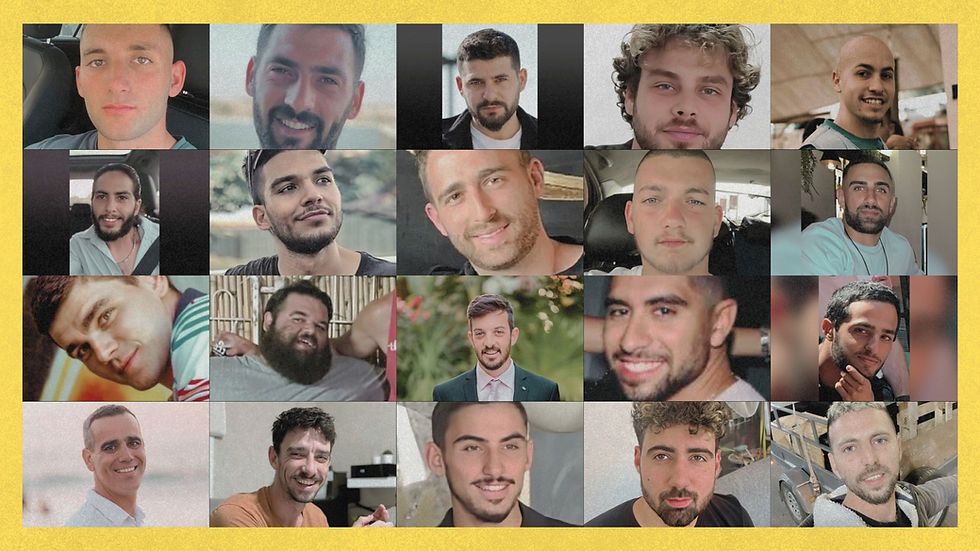Israeli series FAUDA becomes most-watched show in Arab world
- Ron Cantor

- May 1, 2020
- 3 min read
Many of you have enjoyed the watching the real life adventures of former IDF soldier Lior Raz, as a commando in the elite undercover counter-terrorism unit known as Duvdevan unit. Well, it’s not just Israelis and pro-Israel westerners who love Fauda, but amazingly, it has become a hit the Arabic speaking world.
Fauda, which is filmed in both Hebrew and Arabic, portrays an undercover Israeli army unit that infiltrates Palestinian terror cells and foils their plots. The tense action-packed series is the most-watched Netflix program in Lebanon, sixth in Jordan and third in the United Arab Emirates.
Fauda, chaos in Arabic, has been lauded for balancing Israeli and Palestinian narratives and for portraying sympathetic figures on both sides of the proverbial fence. The cast includes Israeli Arabs who speak their native Arabic along with Israelis who speak both Hebrew and Arabic. Netflix bought the popular Israeli series after its first season.
Fauda’s co-creator Avi Issacharoff, who writes for the Times of Israel, attributes the show’s popularity in Arab countries to the language and the fact that coronavirus restrictions have forced people to stay home — and watch TV.
“I think part of it is the language, which means that ‘Fauda’ has crossed over into the Arabic language, and we are also bringing the story on both sides, not just from the Israeli side,” he said. “Of course, the corona also — that is, the fact that people are sitting at home and have nothing to do, so it certainly encourages people to watch, even if it means an Israeli series.”
I think that is connected to the fact that more and more Middle Eastern nations are seeing Israel, not as a evil imperialistic nation, but as a problem solver—when it comes to terrorism, water, computers, agriculture and so much more. They realize that they have more to gain from friendship with Israel, than friendship with ISIS or Al Qaeda.
Israeli productions are usually boycotted in Arab countries. Even the movie Wonder Woman was banned in some Arab countries since the lead part was played by Israeli actress Gal Gadot.
Meanwhile, two recent Arab television productions aired on a Saudi network are drawing accusations of “normalization” with Israel due to some groundbreaking scenes and subject matter. One show features a character calling for the unthinkable — better ties with the Jewish state — while the other show highlights the life of Jews in Kuwait in the 1940s and a rabbi as one of the characters.
In fact, “Umm Haroun” (The Mother of Aaron), featured an opening monologue in Hebrew by a Jewish character: “Before our footsteps go missing and our lives fall into memory, we will be lost to time. … We are the [Persian] Gulf Jews who were born in the [Persian] Gulf lands.”
In the other show, a Saudi actor argues for normalization with Israel against Palestinians, since Palestinians attack Saudi Arabia despite its support over the decades.
Both shows trended on social media, with many people criticizing these messages.
“Would Israel ever produce a series about a Muslim woman in its prisons?” asked Ahmed Madani. “What about the injustices done to the Palestinians? Why not produce a documentary about the suffering of Palestinians?”
In fact, many left-wing Israeli filmmakers have produced documentaries and movies that sympathize with the Palestinian narrative.
Meanwhile, the Hamas terror group that runs the Gaza Strip, lambasted these series.
“This is political and cultural attempt to introduce the Zionist project to Persian Gulf society,” Hamas official Ra’fat Murra said. “The character of Umm Haroun reminds me of [Israeli prime minister] Golda Meir, the head of the occupation, who was a murderous criminal. This is the goal of normalization: hatred, slow killing and internal destruction.”
It is enlightening when Hamas refers to others as “murderous criminals” considering all the blood on their hands, from women and children they used as human shields, to suspected collaborators beheaded without a trial.














Comments